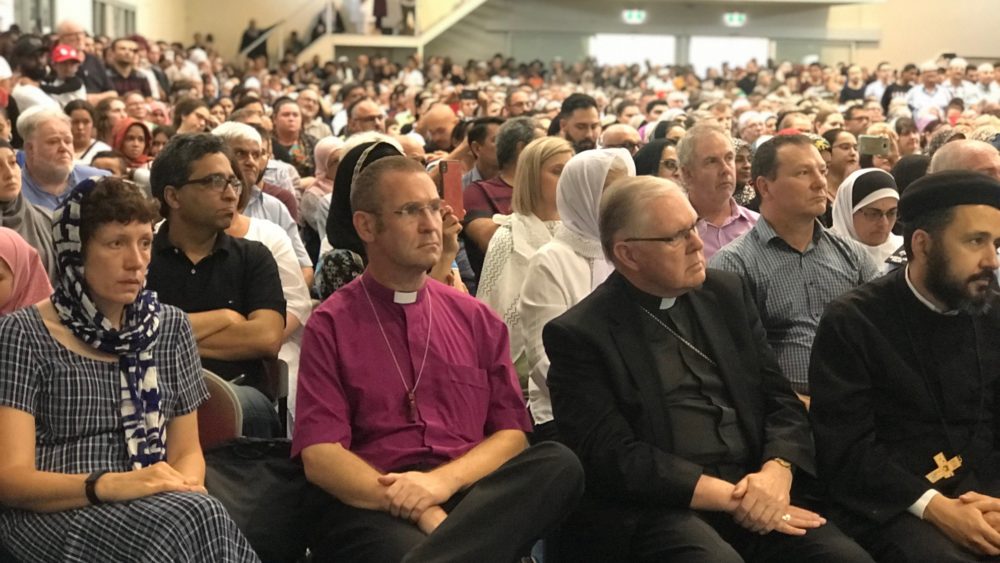OPINION
I read the heading on the front page of The Age on 28 June and my heart sank. “Losing our religion as Christianity plummets” it announced. Oh no, I thought. We are losing ground again, and badly. Yes, I prefer to be in the winner’s circle. Although I should be used to losing by now, my kids, as teenagers years ago after watching my many gambling campaigns, asked, “Dad is there any campaign you have backed that ever won?”
But this headline felt particularly bad for my tribe and for the cohesion of a nation that was built on the Judaeo-Christian foundation. The results of the 2021 ABS census showed that just 44 per cent of Australians now identify as Christians down from 52 per cent five years earlier and 61 per cent in 2011. For comfort, I immediately picked up megachurch Pastor Andy Stanley’s new book Not in it to Win it: Why choosing sides sidelines the church.
… even if Australians are checking out of my faith, which deeply disappoints me, they must be respected and loved unconditionally.
Andy poses the question to the US church – is it possible to disagree politically and love unconditionally? He is especially critical of using Bible and faith claims in a relentless drive to win. Think of the US Supreme Court appointments and political power under Trump.
I found his assertion that we are not in it to win it personally calming and a reminder of my own motivations. A reminder that even if Australians are checking out of my faith – which deeply disappoints me – they must be respected and loved unconditionally.
Of course, another stunning figure in this census is the rise in ‘no religion’ from the last census – an increase from 30 per cent of the population to now close to 40 per cent of all Australians.
What does ‘no religion’ mean to people? Humanists Australia’s social media campaign advocating the ‘no religion’ choice in the Census could be seen as an appropriate smack in the eye of Christians for their perceived political and cultural dominance. Is this the sting out of the Royal Commission that unearthed such horror of child abuse in many churches? Or is this the connotation of the word ‘religious’ as so many today see themselves as spiritual but certainly not religious? I need to remind myself that ‘no religion’ does not mean ‘no belief’ or ‘no meaning’.
The night before this census news we had neighbours, who are our age, over for drinks. The husband is thoroughly secular and was rolling his eyes as his wife recounted her belief in ‘earthing’. She has placed earthing mats under the bedsheets and throughout the house which her husband complains he trips over. She told us that this has transformed her health and well-being as she now feels deeply connected to the earth’s life force. Earthing has given her meaning and she is very keen to witness to its benefits and even proselytise us. Meanwhile, her husband said “I just breathe air. I don’t need any crutch in my life or spiritual belief to keep me going.”
I am sure the rise in beliefs in karma to astrology will be true of many in the ‘no religion’ cohort. And ‘no religion’ probably includes pantheistic worldviews among some that are submerged in the green movement that is mobilising our young. I can live in dialogue with that. In fact, creation care can give biblical foundations to a God who is beyond nature and commands us to tend the garden.
What I fear more is the secular disrespect that feels triumphalist at the loss of religion. Humanists Australia’s campaign smacked of that.
Many secularists fail to see that you cannot sustain multiculturalism without a deep respect for the faiths that shape cultures and which gift meaning and community. Hinduism has surged by 55 per cent since the last census, fuelled by Indian migration. A patronising secular worldview makes as little sense to Hindus as it does to committed Christians.
Albert Camus and Frederich Nietzsche did not consider that God was an option but at least they understood that dismissing God was not a superficial fact as many secularists seem to think, even to the extent of rejoicing at the demise of religion.
Camus spoke of a universe of absurdity and nothingness and accepted that, in such a universe, one lives with his refusal to hope and ‘the unyielding evidence of a life without consolation’. He was seeking an answer to the question of ‘why should I not suicide when the universe is absurd’.
We are all fragile humans trying to get by and make meaning out of our beliefs and that is the path to hope, sanity and solidarity for the common good.
I do need to witness to God as a relational truth that grants me purpose.
For me, faith grants me the meaning that I am held in the arms of a Being as love, and I am here because I am meant to be. I have been given life, and its purpose is to be a blessing to others. I will love unconditionally those who cannot see any sense in my faith. I will witness to the meaning that I have found in knowing God is love, whilst respectfully making space for others’ beliefs or none. And I do not need to win but I do need to witness to God as a relational truth that grants me purpose.
On another note, I feel sad about the demise of Eternity News and will miss it. I have enjoyed the reporting of current events like the Census as it was unique and different to just another news outlet. I found it an invaluable service for Christians to reflect on our faith and engage with the Bible in one hand and the newspaper in the other.
Email This Story
Why not send this to a friend?


